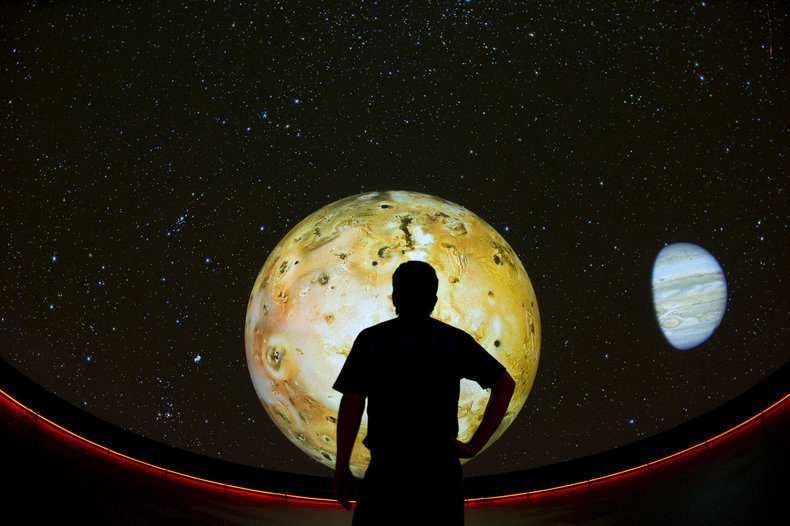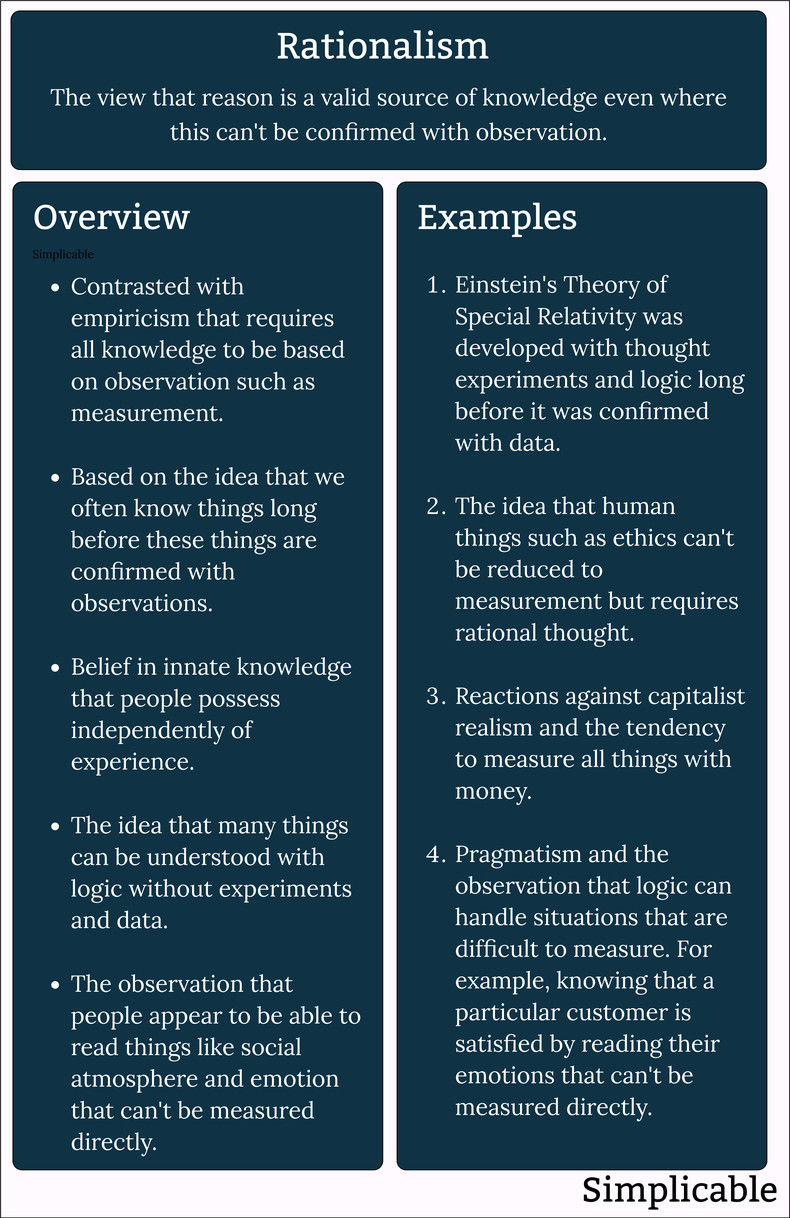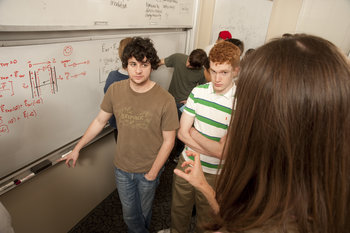
Innate Knowledge
The view that humans naturally have access to knowledge. For example, an innate sense of morals or aesthetics that can't be improved with measurement.Innate Concepts
The view that humans naturally comprehend a set of concepts that are true knowledge. Plato referred to these as the forms -- a set of immutable, timeless and changeless concepts that can be used to understand things. For example, a mathematician who innately understands the concept of zero.Intuition
Intuition is the apparent ability for people to know things that are determined by processes unknown to their conscious mind. The Ancient Greeks, including the likes of Plato and Socrates, viewed this as a connection to a mystical and timeless force. Modern science tends to attribute intuition to the unconscious mind. Either way, rationalists view intuition as a valid source of knowledge. For example, Einstein attributed his theories to intuition saying "There is no logical path to these laws; only intuition ..."First Principles
Rationalism views innate knowledge and concepts to be first principles from which much can be deduced. For example, Einstein's Theory of Relativity can be used to calculate the effect of the speed of a satellite on time in order to sync a highly accurate clock with Earth time. This can all be done with theories and equations that Einstein produced with rational thought.Abstractions
Rationalism has superior ability to work in abstraction as compared to observation and measurement. For example, the concept of freedom is completely abstract and difficult to observe or measure but is innately understood by humans.Human Experience
Elements of the human experience such as emotion or spirituality are difficult to observe or measure but can be innately understood. For example, a concept such as love is understood by people such that they can think about it despite not being able to observe it as a tangible physical thing.Observation
Rationalists tend to view rational thought as the highest order of thinking. They aren't necessarily against observation and measurement such as the scientific method but may view this as a less powerful method than pure rational thought. For example, mathematics is largely based on rational thought and is the basis for all sciences.Summary
Rationalism is the belief that thinking is a source of knowledge independent of the need to observe and measure.
| Overview: Rationalism | ||
Type | ||
Definition | The view that reason is a valid source of knowledge even where this can't be confirmed with observation. | |
Related Concepts | ||































